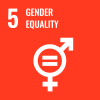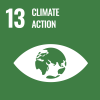Koundara, North-West Guinea, 28 October 2022 – Hawa's story is all too familiar in the town of Koundara, located close to the border with Senegal. She recounts, “Years ago, my son Sadjo and I decided to grow onions and we took out a loan with a microfinance bank. But after a few months, there was a shortage of water. The rains didn’t arrive, and it became extremely hot. All of our seeds were destroyed. We found ourselves with a debt that we could not repay. I was imprisoned for not repaying my debt.”
“Sadjo felt ashamed about our situation and could no longer stay in the village. He was forced to leave Guinea to try and repay our debt. It was only last year that I learned my son was in Libya. I have received no news from him since. I don't know if he is still alive,” Hawa says. “Every family in this town has one or two sons who have left Guinea.”
The remote town offers few economic opportunities, so many residents try to eke out a living in agriculture. Hawa recalls, “When we were young, the vegetation was very dense and fertile, and it rained heavily. We were able to easily grow enough food.”

Tomatoes, peppers, cucumbers, and onions are commonly grown in Koundara. The variety of grown vegetables has not changed over the years, but the overall harvests of farmers has been reduced due to rising temperatures. Photo: IOM/Muse Mohammed
Today, subsistence farming is considerably more difficult, given the profound changes to the land itself and rising temperatures. Over time, land degradation, deforestation, extensive mining activity, and drought have culminated in poor crop yields on a continual basis forcing many Guineans into irregular migration.
The International Organization for Migration (IOM) works with affected communities like Koundara to mitigate or help find solutions to alleviate the impact of climate change on livelihoods.
In Hawa’s case, IOM identified that access to water was a critical gap to cultivating her vegetables as nearby rivers had stopped flowing. Four water wells have been installed on her plot of land, enabling Hawa and her women’s collective to adequately irrigate their crops.
“When we started this collective, we were 75 women, but now we have grown to more than 100 women. We have access to more water, thanks to improved wells. We also have better equipment and seed. This has more than tripled our agricultural output,” explains Hawa.


Hawa and her women’s collective have managed to triple their agricultural output, thanks to IOM’s installation of nearby wells. Photo: IOM/Muse Mohammed
IOM is also working with government authorities in the development of a National Strategy on Climate Change that mainstreams migration-related considerations and strategies. Critically, community-focused initiatives like those in Koundara can help shape the development of a national policy.
This story was written by Muse Mohammed, IOM’s Multimedia Officer in the Headquarters office.



